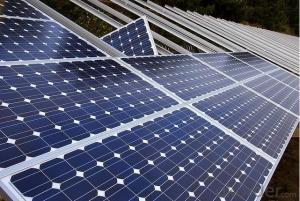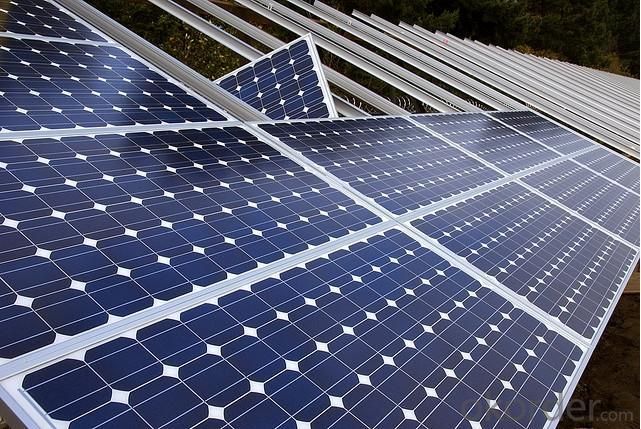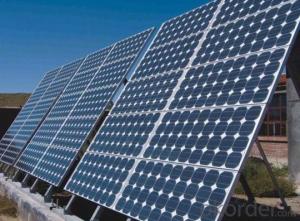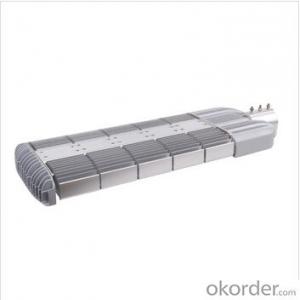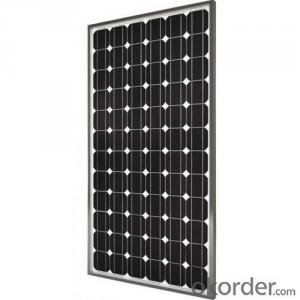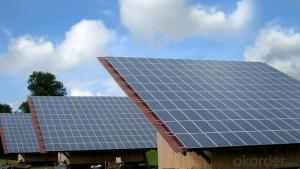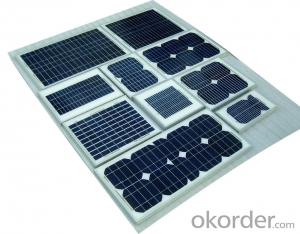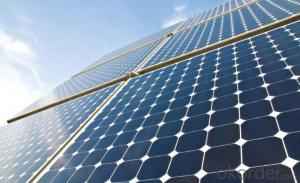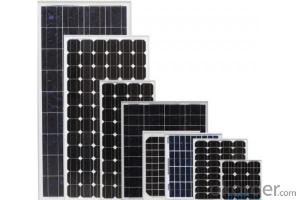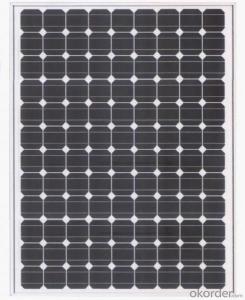Solar Panels Roseville CA - Off-Grid Solar Panel TDB125×125/3-36-P Reliable
- Loading Port:
- Ningbo
- Payment Terms:
- TT OR LC
- Min Order Qty:
- 100 carton
- Supply Capability:
- 10000 carton/month
OKorder Service Pledge
OKorder Financial Service
You Might Also Like
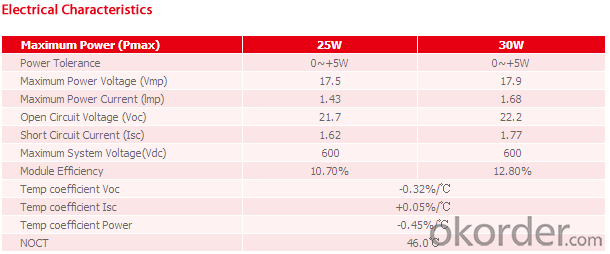
Specification:
· Highest performance enabled by higher efficiency monocrystal line cells and the latest Solar Wafer Technology for multicrystal line cells
· Lower weight design which reduces the total system load on a roof, making it ideal for residential customers. Its shape allows for better roof utilization
· Its low weight means easier handling for installers
· Modules are designed to withstand PID (Potential Induced Degradation)*
· High light transmission Anti-Reflective Glass with improved self-cleaning capability
· 0/+5 W Positive power tolerance for reliable power output
Warranty
CNBM Solar provides one of the most comprehensive module warranties in the industry:
· 10 years for product defects in materials and workmanship
· First 12 years for 90% of warranted minimum power
· Remaining 25 years for 80% of warranted minimum power
Certification
CNBM Solar strictly carries out the ISO 9001 quality control methodology and has implemented check points at every step of the production process to ensure our product performance durability and safety. The stringent quality control process has been confirmed by numerous independent agencies and LDK Solar modules earned IEC, TUV and UL certifications.
· IEC:IEC 61215, IEC 61730 (1&2), conformity to CE
· UL 1703 2002/03/15 Ed:3 Rev:2004/06/30
· ULC/ORD-C1703-01 Second Edition 2001/01/01
· UL and Canadian Standard for Safety Flat-Plate
· ISO 9001: 2008 Quality Management Systems
· CEC Listed: Modules are eligible for California Rebates
· PV Cycle: Voluntary module take back and recycling program
· MCS Certificate
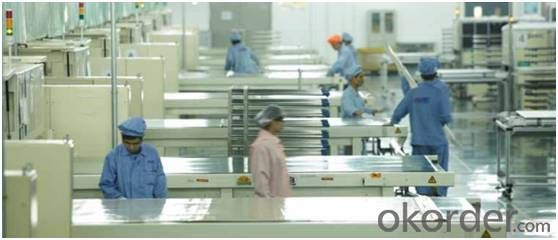
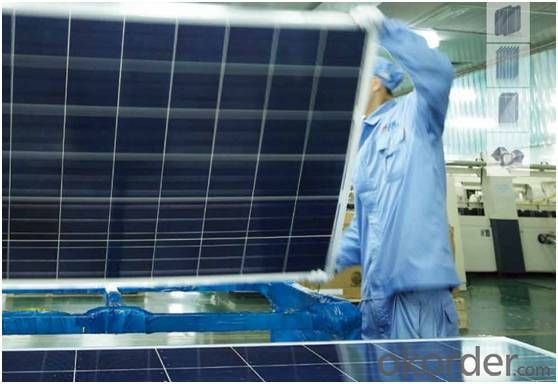
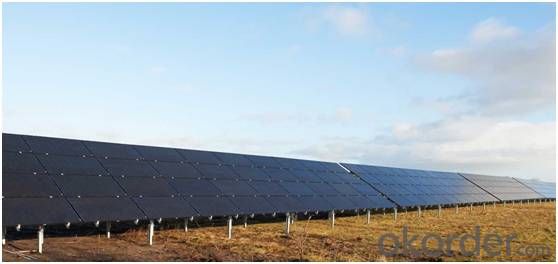
FAQ
1. How do I decide which system is right for me ?
For protection from long outages, include a generator or solar panels in your Must solar system. Shorter outages can be handled by a battery-only system.
2. Where my system will be installed ?
Must solar systems are usually wall-mounted near a home's main electrical (circuit breaker) panel.
3. How do I install my system ?
A must solar backup inverter is connected to a home electric system , we will supply detailed installation manual and videos for our customers .
How fast will my system respond to a power outage ?
Must solar inverters typically transfer to battery power in less than 16 milliseconds (less than 1/50th of a second).
What kind of batteries do the systems include ?
Must solar backup electric systems use special high-quality electric storage batteries.
- Q: Can solar panels be installed on a factory or manufacturing plant?
- Yes, solar panels can be installed on a factory or manufacturing plant. In fact, many industrial facilities are increasingly adopting solar power as a sustainable and cost-effective energy solution. Installing solar panels on factory rooftops or open spaces can help offset electricity consumption, reduce carbon emissions, and provide long-term savings on energy bills.
- Q: So, I've seen cheap solar panel kits for sale from Harbor Freight, and regardless of whether or not I were to buy a set from them or someone else, I was wondering what the process of implementing a small-scale solar system into your household electrical system would be.I've read articles that started out too in-depth or were speaking of systems on a much larger scale.Can it be as easy as buying the panels and inverter, and plugging it into a socket, or is there more to it?Some of the articles I was reading had mentioned having to contract with your electrical supplier, having to have an electrician tie it all in in some special/ necessary way, using a battery pack (would this be necessary for a tied-in system?), or using the system to only power single items, like a water heater, or plugging items into a connected battery-pack, all of which I'm not sure is necessary or needed for what my goals/ means are/ would be.
- Take okorder /... This unit produces 45W for $90. Inverter is extra. Let's say this unit produces that amount of power for a full 2 hours a day, that's 45W * 2h = 540 Wh or 0.54kWh. If I save that from my electrical company, I would pay about 5 cents. $90 then takes 3800 days or 0 years. At that point, you haven't actually made any money, you've simply recovered what you paid out to buy the unit 0 years ago. Yes, electrical power prices will be going up over the long term but the output of this unit is also not going to be 45W over its lifetime (if it even lasts 0 years) so I really question the economics.
- Q: Pls is it ok to connect a 0watt and 20watt solar panel together into a charge controller port, can i just tie the wires together and run into the controller?? Will damage anything...Thanks guys
- You should specify the controller ratings first. Otherwise it is not possible to answer your question.
- Q: How do solar panels affect the property's energy resilience?
- Solar panels can significantly enhance a property's energy resilience by providing a reliable and sustainable source of electricity. They reduce dependence on the grid, allowing homeowners to generate their own power and potentially store excess energy in batteries. In the event of a power outage or grid failure, solar panels can continue to supply electricity, ensuring uninterrupted energy supply and boosting the property's overall energy resilience.
- Q: I have the wattage of solar panel but i dont know about the voltage amp; current rating of it. Plz explain me about the voltage rating of solar panel.
- A okorder /
- Q: I know that the Solar panels store the power from the sun in the daytime, where does that stored energy go from there? Is it stored in the batteries? And how would you keep the batteries topped up if you had no Electric? by a generator? interested in solar panels for abroad, but need more info.
- Solar panels do not store power. Solar panels convert sunlight into electricity. To store power you need batteries. The usual type of batteries used are lead-acid deep discharge( similar to car batteries). The batteries are charged up during the time the sun is out. However, as a backup you could also have a generator handy to provide power for times when the sun did not shine enough to keep the batteries charged up.
- Q: Can solar panels be installed in a shaded area?
- Solar panels can still be installed in a shaded area, but their efficiency and electricity production will be significantly reduced.
- Q: Are solar Panels worth it, Do they really quot;save moneyon electricity?
- I say yes, I had a method put in a couple of months ago. I paid $6K and my utility paid $0K. I should destroy even in about 6 years. The procedure is guaranteed for 25 years, so i will have as a minimum 9 years of free vigour. I went from a invoice of round $200 per month to underneath $20 in the summer. I will pay a bit of extra in the winter months given that much less daytime, but i do not use as so much power within the wintry weather. Each and every 2 months electrical power goes up an ordinary of 5%, so while my neighbors have a larger bill each and every month, i will be staying underneath $50 for a long time. Even with out the rebate i would have a smash even time of about 0 years, nonetheless 5 years of free vigour.
- Q: I'm trying to charge rechargeable AA batteries with a solar panel. What gauge wire should I use to connect the panel to the batteries? I know I'm not going to have a lot of current going through so the wire size doesn't really matter. Can the wire be too thick thoShould I ugh? Should I use a diode to keep the batteries from overpowering the circuit? If so, what size diode? My panel is 4.8V 50mA. Can I just hook the panel straight into the batteries or do I need something else?
- In order: .? Just about any wire will do.? You can handle 50 mA over just about anything, even 28 gauge telephone wire.? Your biggest problems are probably going to be mechanical stress (you want stranded wire instead of solid, to avoid breakage) and dealing with the size of larger wires. 8 gauge speaker wire may be a good optimum. 2.? You need a diode.? If you're charging NiMH or NiCd cells you're going to have about .25 volts/cell; you can charge up to 3 of them in series with a 4.8 volt panel.? The solar panel is a bunch of diodes itself, but they're leaky in the reverse direction; the diode prevents the batteries from discharging themselves back through the panel.? You want a Schottky-barrier diode, because the forward voltage drop is about 0.2 volts instead of 0.7 volts for a regular silicon rectifier.? This gives you maximum current output from your panel.
- Q: How do solar panels impact the environment?
- Solar panels have a positive impact on the environment as they generate clean, renewable energy without emitting harmful greenhouse gases or pollutants. They help reduce reliance on fossil fuels, decrease air and water pollution, and combat climate change, making them a sustainable and environmentally friendly choice for energy production.
Send your message to us
Solar Panels Roseville CA - Off-Grid Solar Panel TDB125×125/3-36-P Reliable
- Loading Port:
- Ningbo
- Payment Terms:
- TT OR LC
- Min Order Qty:
- 100 carton
- Supply Capability:
- 10000 carton/month
OKorder Service Pledge
OKorder Financial Service
Similar products
Hot products
Hot Searches
Related keywords
